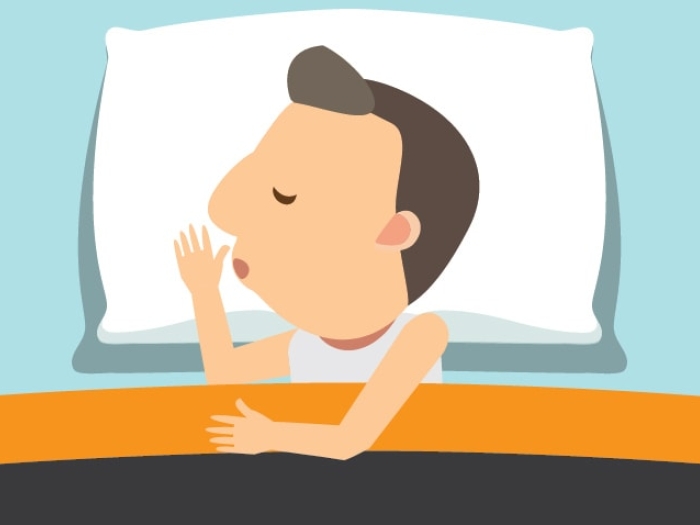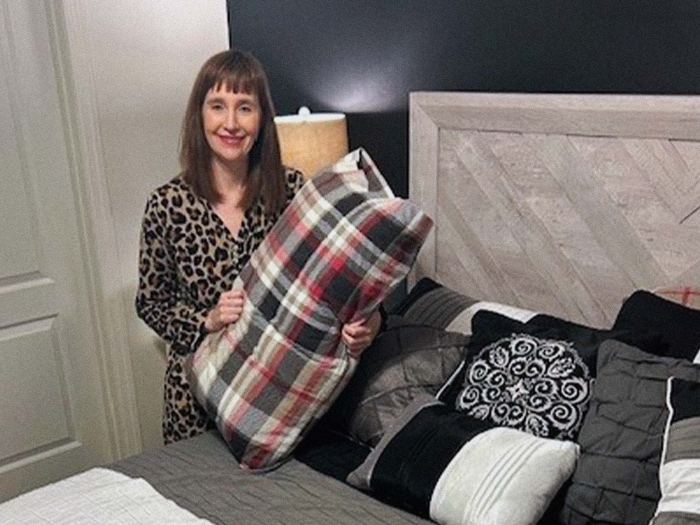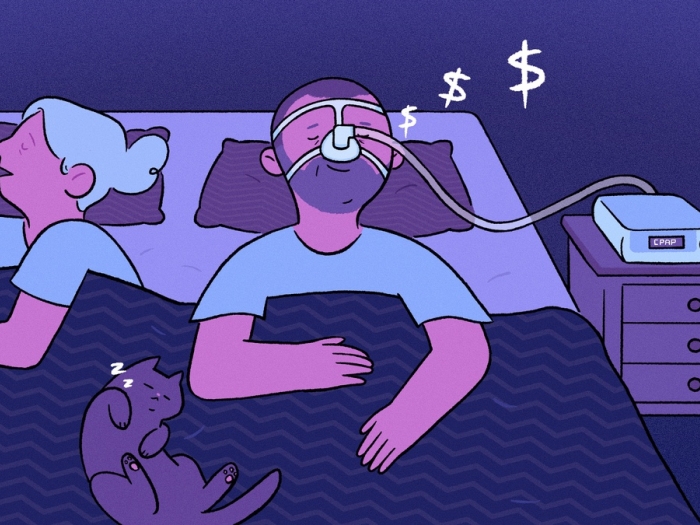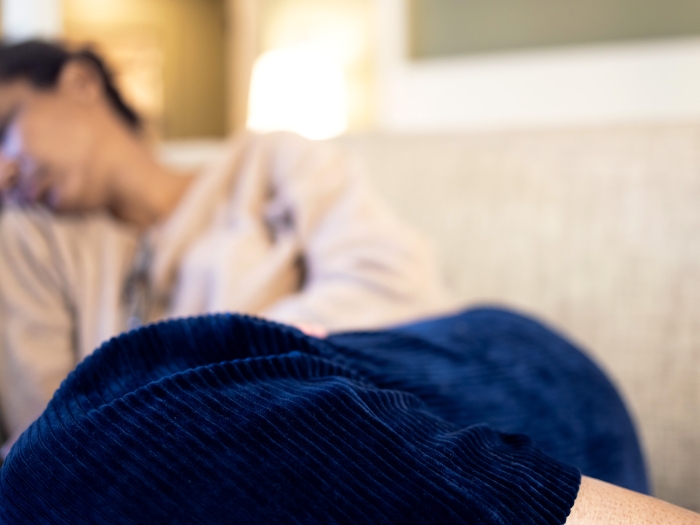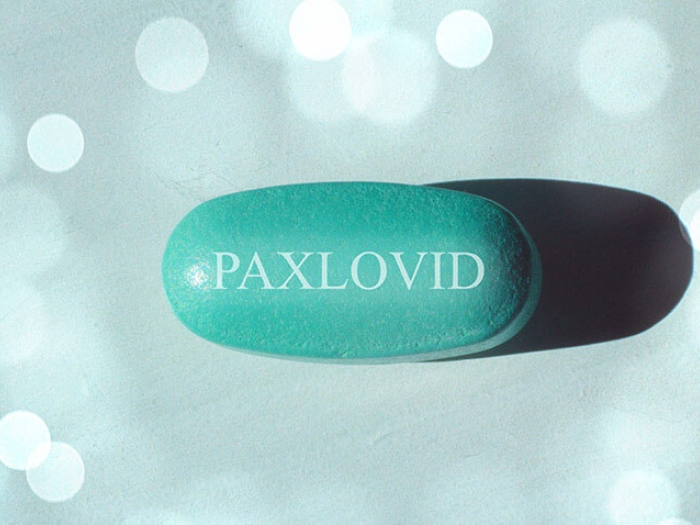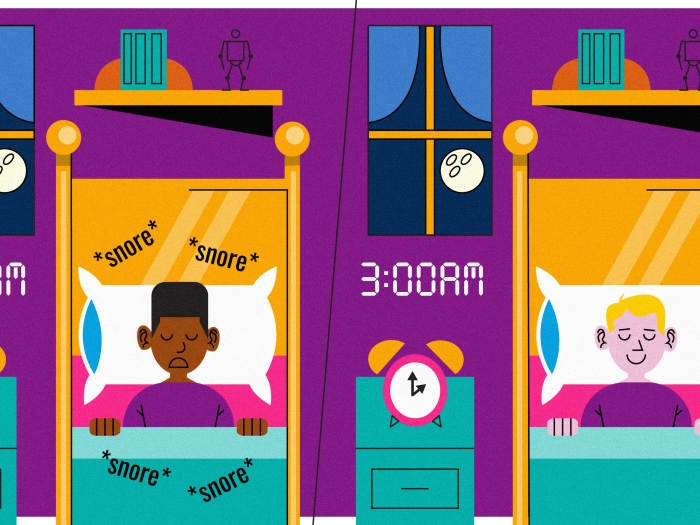OSA can lead to health issues such as hypertension, heart attack and stroke. Test yourself to find out if you need to see a sleep medicine professional.
7:00 AM
Author |
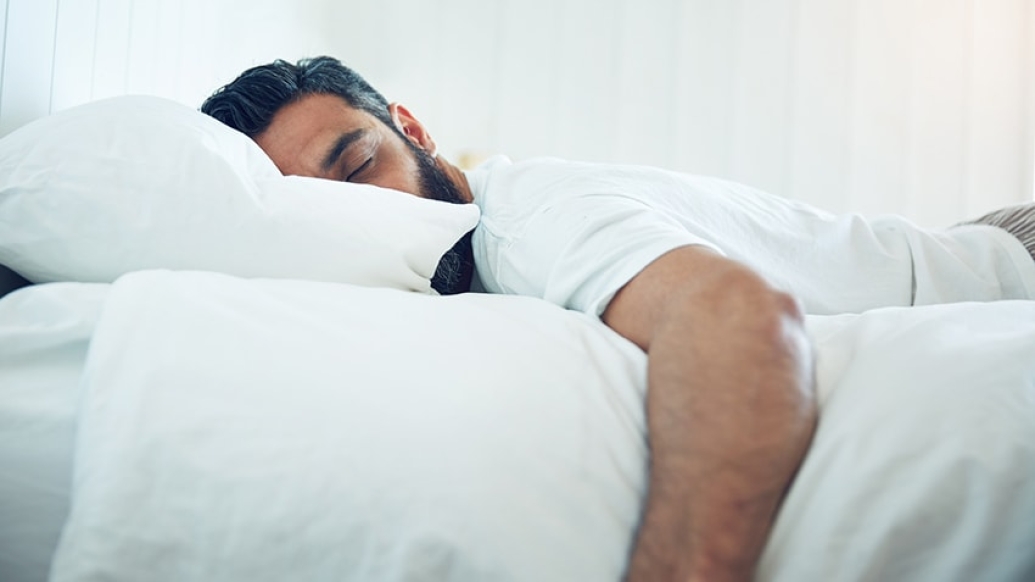
Sleep behaviors such as snoring are not only a nuisance, but also can be a bellwether for a serious condition: obstructive sleep apnea.
MORE FROM MICHIGAN: Sign up for our weekly newsletter
When left untreated, OSA can increase an individual's risk of developing hypertension, heart attack, cardiac arrhythmia, stroke and possibly type 2 diabetes, says Anita Valanju Shelgikar, M.D., of the University of Michigan Sleep Disorders Center. Sleep apnea isn't just an adult's disease, either. The condition can also affect kids.
"Certain factors increase your risk of obstructive sleep apnea," says Shelgikar, so it's important to know what these are.
Shelgikar recommends asking yourself the following questions to help you evaluate your risk for OSA:
1. Do I snore?
Not everyone who snores has obstructive sleep apnea. But Shelgikar recommends that individuals who snore be evaluated for other obstructive sleep apnea risk factors to determine if further diagnostic testing is warranted.
2. Do I have a history of stroke or transient ischemic attack?
If you've had a stroke or transient ischemic attack, you're at an increased risk of having OSA. Treating obstructive sleep apnea can prevent additional strokes or heart problems.
3. Do I have high blood pressure?
If you have high blood pressure, particularly high blood pressure that is not responding to multiple medications, Shelgikar recommends talking with your doctor about whether you should be evaluated for OSA.
4. Do I have a large neck circumference?
A neck circumference greater than 40 cm (15.7 inches) may increase the likelihood of having obstructive sleep apnea for both men and women.
5. Am I excessively overweight?
The relationship between obstructive sleep apnea and obesity is complex, but individuals who are obese have a greater risk of having obstructive sleep apnea. This, says Shelgikar, may be due to deposits around the upper airway that may increase the likelihood of developing obstructive sleep apnea.
"Both men and women can have obstructive sleep apnea, though men have a higher likelihood of having it," says Shelgikar, noting that a woman's risk for obstructive sleep apnea increases after menopause.
"If you have any of these risk factors," Shelgikar says, "consider seeing a sleep medicine physician, or speak to your primary care physician about the possibility of obstructive sleep apnea."
For more information or to make an evaluation appointment, contact the Sleep Disorders Centers at Michigan Medicine.

Explore a variety of healthcare news & stories by visiting the Health Lab home page for more articles.

Department of Communication at Michigan Medicine
Want top health & research news weekly? Sign up for Health Lab’s newsletters today!
